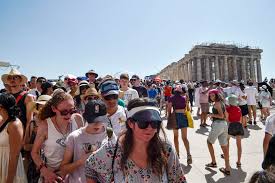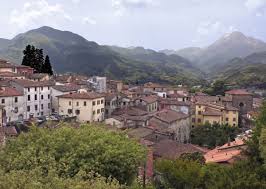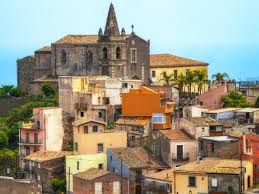Deadly Toll in Greece as Heat Waves Sweep the Country

Heat waves that have swept across Greece this month continued to exact a deadly toll over the weekend, with the authorities on Sunday reporting the death of an American on a Greek island. At least five tourists remain missing across Greece.
The authorities said that the body of a 55-year-old from Floral Park, N.Y., who had been missing on the small island of Mathraki near Corfu since Tuesday was found on a beach on Sunday.
That followed the discovery of a man’s body on the island of Samos the day before. A Dutch hiker has been missing there for a week, but the body had not yet been identified.
Searches were also underway for the five other tourists who have gone missing across Greece amid searing temperatures this month.

“The problem of missing hikers is not new — we have it every year,” said Constantina Dimoglidou, a police spokeswoman. “But this year, it seems more people became disoriented during the heat wave.”
One of the missing was Albert Calibet, 59, a retired police officer who is a dual citizen of France and the United States, on the Aegean island of Amorgos. Mr. Calibet had set out on a trek alone on Tuesday morning, Ms. Dimoglidou said.
Also missing were two Frenchwomen, aged 73 and 64, on another Aegean island, Sikinos; and an Israeli couple in the area of Vytina in the Peloponnese peninsula, the authorities said.
The announcements came only days after the remains of Michael Mosley, a British medical journalist and documentary maker, were found on the island of Symi after he failed to return from a walk. At least three other tourists have died this month while out walking during the extreme heat.
Greece has experienced two back-to-back heat waves over the past two weeks, bringing temperatures in excess of 100 degrees Fahrenheit, or about 38 degrees Celsius, to many parts of the country. Yet while the authorities typically issue warnings to older people and people with health problems to remain indoors and hydrated on days when extreme heat is forecast, those are guidelines rather than rules, and there are no restrictions on activities like hiking.
The body of the Long Island man, whose name was not released, was found Sunday afternoon on a small beach near a port on the western side of Mathraki, a tiny island of just a couple of hundred residents, the island’s deputy mayor, Spyros Argyros, said.
“He was found in the surf on the beach at a spot which had already been searched, so it seems he was washed out of the sea in the past 24 hours,” Mr. Argyros said.
The man was last seen on Tuesday night and had shared a drink with two British women who dropped him off at his rented home in their car, the deputy mayor said. A friend alerted the police on Thursday after finding the door of the home open, with the lights and air-conditioning on. The body was being transferred to Corfu for an autopsy to determine the cause of his death, Mr. Argyros said.
Mr. Calibet, the retired police officer, had been visiting Amorgos for years and knew its hiking routes well, according to local officials, who believe he might have opted for a more challenging course. The trek he told friends he planned to take was a 12-mile trail south to Katapola, an established route for walkers.
“He had walked that route many times,” said Calliope Despotidi, the deputy mayor of Amorgos. “He may have chosen to take a tougher route, and perhaps overestimated his capabilities. The heat has been intense.”
A few hours after setting off from the village of Aegiali in the island’s north, Mr. Calibet stopped at a convenience store to buy water and other provisions, Ms. Despotidi said, but “after that, there was no trace of him.” She said helicopters, drones and coast guard vessels had scoured the island in search of him since Tuesday afternoon.
The body of the man found on Samos was discovered in a creek by a Greek fire service drone. A 74-year-old Dutch hiker has been missing on the island since last Sunday.
Dimitris Kalaitzis, a member of the local chapter of the Hellenic Rescue Team, described the walking route that the Dutch man was believed to have taken in southwestern Samos as “arduous.” Mr. Kalaitzis said that, according to the man’s wife, he had only a small bottle of water when setting out for his walk.
Ms. Dimoglidou said on Wednesday that the Dutch tourist’s cellphone was switched off.
The mayor of Sikinos, Vassilis Marakis, told Greek television on Saturday that a search for the two Frenchwomen had started on Friday.
“They went out for a walk yesterday in the heat,” he said, “and now we can’t find them.”
Mr. Marakis, who was participating in the search, told Greek television on Saturday that one had her cellphone off and the other did not have it with her.
One of the women sent a text message to the owner of the room where she was staying at 8:24 a.m. Friday, saying: “I’ve fallen. I don’t feel well,” Mr. Marakis said.
The body of Mr. Mosley, 67, the British medical journalist, was found on June 9 on rocks next to a beach in Agia Marina, on the island of Symi, after a five-day search. He had been reported missing by his wife, Clare Bailey, a day after the couple arrived for a weeklong stay, according to the police spokeswoman. He had gone for a walk across what local officials described as “rugged terrain” as temperatures had been hovering around 95 degrees Fahrenheit.
On Friday, an 80-year-old Belgian man who had been walking with a group died near the ancient site of Lato in eastern Crete, according to the police spokeswoman. Two other tourists — a 70-year-old Frenchwoman and a Dutch man, also 70 — also died early this month during treks in different parts of Crete, Ms. Dimoglidou said.
As the latest hot spell peaked on Wednesday and Thursday, the authorities closed many schools in Athens, and visiting hours were restricted at several ancient sites, including the Acropolis, Greece’s most popular.
The Acropolis resumed regular visiting hours on Friday as temperatures dipped slightly, but restrictions remained in place for the ancient site of Knossos on Crete, where temperatures were forecast to reach 40 degrees Celsius, or 104 Fahrenheit. Greece’s Culture Ministry said sites on Crete would close from 1 to 5 p.m. if temperatures exceeded 40 Celsius.





